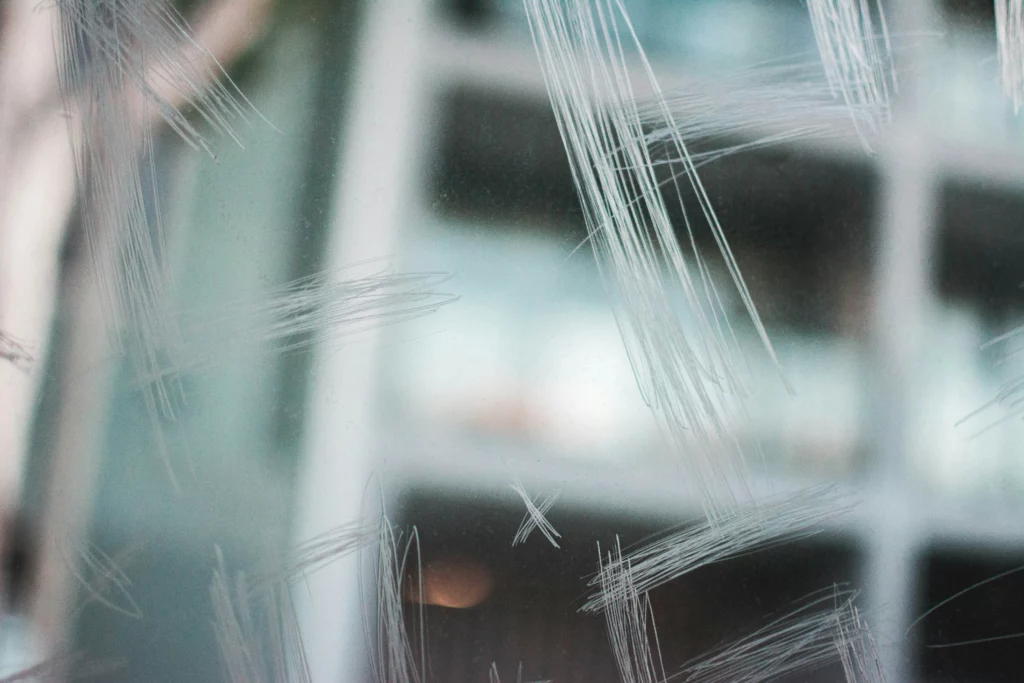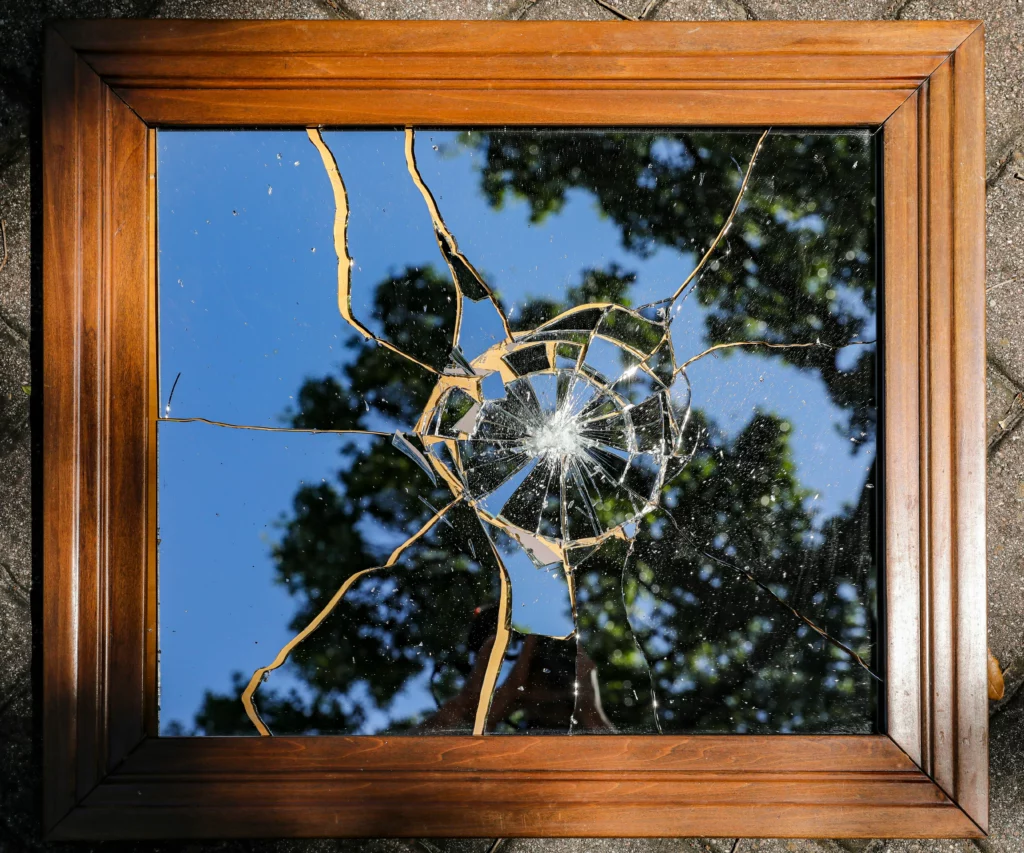Why Proper Care for Glass Windows Matters
Did you know that poorly maintained windows can account for up to 25% of a home’s energy loss? At Geek Window Cleaning, we understand that glass windows are more than just a design feature; they are essential for natural light, ventilation, and energy efficiency. Regular maintenance is key to keeping your windows functional and beautiful. Proper care not only extends their lifespan but also saves you money on energy bills. In this blog post, we’ll explore practical tips and advice on how to care for your glass windows, ensuring they remain in top condition for years to come.
Hard water stains ruining your view? Learn how to tackle hard water stains on windows with our easy-to-follow guide.
Avoiding Damaging Glass Windows Saves You Money
Regular maintenance of your glass windows can prevent costly repairs and replacements. Understanding the common causes of glass damage can help you take preventive measures to protect your investment.
The Cost of Repairing Glass Windows
Repairing damaged glass windows can be expensive, especially if the damage is severe. Simple issues like scratches or minor chips can escalate into more significant problems, necessitating complete window replacement. For instance, when glass thickness diminishes below 0.030″, the less corrosion-resistant ground coat might be exposed, requiring reglassing. Regular inspections and timely repairs can save you from these high costs.
Damaged Glass Windows Affect Your Energy Bills
Damaged glass windows can compromise your home’s insulation, leading to higher energy bills. Cracks and gaps allow air to escape, reducing your windows’ energy efficiency. Ensuring your windows are in good condition helps maintain a comfortable indoor environment and keeps your energy costs down.
The Basics of Glass Windows
A Brief History: When Were Glass Windows Invented and When Did They Become Common?
Glass windows have evolved significantly from ancient times to today’s advanced, energy-efficient panes. Initially the Romans first used glass in windows around the 1st century AD, although these early versions were small and cloudy. During the Middle Ages, stained glass became common in churches, showcasing intricate designs. Moving into the Renaissance, the introduction of cylinder glass allowed for larger and clearer panes. Then, the Industrial Revolution brought about plate glass manufacturing, enabling even clearer and larger panes and the rise of sash windows for better ventilation. Finally, in the 1950s, Sir Alastair Pilkington’s float glass process revolutionized the industry by creating perfectly flat, uniform sheets efficiently and cost-effectively.
Today’s glass windows are not only clearer and stronger but also come with various enhancements. Modern windows can be double or triple-glazed, with layers of glass separated by air or inert gas to improve insulation and energy efficiency. Coatings like low-emissivity (low-E) coatings reflect infrared radiation while allowing visible light to pass through, further enhancing energy efficiency. Laminated and tempered glass provides additional safety by making windows more resistant to impact and breakage. Modern windows often include features like UV protection, soundproofing, and self-cleaning capabilities.
How Are Glass Windows Made?
Historically, glass was produced using methods like crown glass, cylinder glass, and plate glass, all of which involved manual processes that resulted in less uniformity and clarity compared to modern techniques. In contrast, the float glass process revolutionized window manufacturing, producing high-quality, uniform sheets efficiently. Additionally, advancements in tempering and laminating processes have significantly increased the strength and safety of modern glass windows. Overall, the evolution of glass windows reflects significant advancements in technology and materials, resulting in today’s highly efficient, durable, and aesthetically pleasing windows that enhance the comfort and energy efficiency of homes and buildings.
Modern glass windows are typically made using the float glass process. This involves floating molten glass on a bed of molten metal to create a uniform thickness. The glass is then cooled and cut to size, and additional treatments like tempering or coating may be applied to enhance durability and performance. Understanding this process highlights the importance of maintaining the glass to ensure its longevity.
Preventing Scratches and Damage to Your Glass Windows
Taking proactive measures can help prevent scratches and damage, ensuring your glass windows remain clear and beautiful.
Seasonal Maintenance for Long-Lasting Clarity
Regular seasonal maintenance is vital for keeping your glass windows in top condition. This includes:
- Cleaning both the interior and exterior surfaces.
- Inspecting for any signs of damage, such as cracks or chips.
- Addressing any issues promptly to prevent further deterioration.
- Ensuring the frames, tracks, and screens are clean and free from debris.
Avoid Putting Paint or Other Products on Your Glass Windows
Applying paint or other products to glass windows can damage them. For example, during a home renovation or DIY project, it’s easy to splatter paint onto your windows accidentally. If this happens, it’s crucial to remove the paint carefully to avoid scratching the glass. Use a mild glass cleaner and a soft cloth to clean the surface gently, and if necessary, a razor blade can be used cautiously to scrape off the paint. Avoid using abrasive scrubbing pads or harsh chemicals, as these can cause further damage to your glass windows.
How to Remove Paint from Glass Window
To remove paint from glass windows:
- Use a mild glass cleaner and a soft cloth.
- Avoid using abrasive scrubbing pads or harsh chemicals, as these can scratch or damage the glass.
- A razor blade can be used gently to scrape off paint, but it should be done with caution to avoid scratching.
Avoid Damage by Wildlife
Birds and other wildlife can sometimes collide with glass windows, causing damage. In the United States alone, up to one billion birds die annually from window collisions. These impacts can crack, chip, or shatter the glass, leading to costly repairs.
How to Prevent Birds from Flying into Glass Windows
Birds often fly into glass windows because they see reflections of the sky or trees. To prevent this:
- Place window decals or stickers on the windows to break up reflections.
- Use bird screens to prevent birds from reaching the glass.
- Apply reflective film to the windows.
- Move bird feeders closer to the windows so that birds don’t build up enough momentum to cause significant damage.
Avoid Harsh Chemicals
Harsh chemicals can erode the surface of your glass windows, leading to roughening, chipping, and even complete failure of the glass over time. Here are some specific chemicals to avoid:
- Hydrofluoric Acid: This acid is particularly dangerous for glass, as it can quickly corrode the surface, causing significant damage. Hydrofluoric acid is often found in industrial rust removers and should be kept away from all glass surfaces.
- Phosphoric Acid and Phosphorus Acids: These acids, especially in concentrated forms, can cause rapid corrosion of glass. They are often used in cleaning agents like heavy-duty bathroom cleaners (e.g., Lime-A-Way) and should be avoided for glass windows.
- Alkaline Solutions (e.g., Sodium Hydroxide, Potassium Hydroxide): These caustic alkalis can dissolve the silica in glass, leading to severe corrosion. They are commonly found in oven cleaners (e.g., Easy-Off) and drain cleaners (e.g., Drano). Avoid using these products near glass windows.
- Salts (e.g., Chlorides, Fluorides, Lithium, Magnesium, Aluminum Salts): Acidic ions from salts can attack the glass, with fluorides being particularly damaging. Products like rust stain removers (e.g., CLR) often contain these salts. The level of damage depends on the type of ion formed and the phase (liquid or vapor) in which the attack occurs.
To keep your glass windows in pristine condition, use mild glass cleaners and avoid products containing these harmful chemicals.
Avoid Scrubbing Pads
Abrasive scrubbing pads can scratch the surface of your glass windows, leading to permanent damage. When you need to remove stubborn paint or adhesive residue after a home improvement project, you might be tempted to use a harsh scrubbing pad. However, this can result in unsightly scratches. Instead, use soft cloths or sponges for cleaning to avoid any damage and preserve the clarity of your windows.
Avoid Tapes or Decorations with Adhesive
Adhesive tapes or decorations can leave residue on your glass windows, which can be difficult to remove and may cause scratches. Use non-adhesive methods for decorating or securing items near your windows.
Enhancing Window Longevity with Regular Inspections
Regular inspections are crucial for maintaining the longevity of your glass windows. Check for any signs of wear, damage, or corrosion. Look for symptoms like loss of fire polish, smoothness, chipping, and pinholes. Address any issues promptly to prevent further deterioration. By catching problems early, you can often avoid more extensive and costly repairs.
Professional Window Cleaning: When and Why to Hire Experts
Hiring professional window cleaners can ensure your windows are thoroughly cleaned and maintained without the risk of damage. Professionals have the tools and expertise to clean high and hard-to-reach windows safely and effectively. They can also identify potential issues during cleaning, providing an additional layer of inspection and maintenance.
Safety Tips for Cleaning High and Hard-to-Reach Glass Windows
When cleaning high or hard-to-reach glass windows, safety should be a top priority. Use sturdy ladders or scaffolding, and ensure you have a secure footing. If you’re uncomfortable with heights or lack the proper equipment, consider hiring professionals to do the job. Proper safety measures prevent accidents and ensure your windows are cleaned effectively.
Conclusion: Keeping Your Glass Windows Crystal Clear Year-Round
Proper care and maintenance of your glass windows are essential for ensuring their longevity and performance. By following these tips and taking preventive measures, you can keep your windows looking beautiful and functioning efficiently year-round. For professional window cleaning in Houston, contact Geek Window Cleaning to help you maintain the clarity and beauty of your glass windows.





Recent Comments